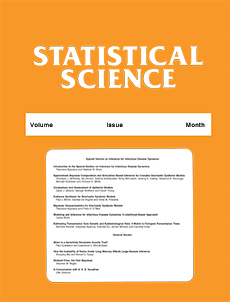Abstract
Fractional imputation (FI) is a relatively new method of imputation for handling item nonresponse in survey sampling. In FI, several imputed values with their fractional weights are created for each record with missing items. Each fractional weight represents the conditional probability of the imputed value given the observed data, and the parameters in the conditional probabilities are often computed by an iterative method such as the EM algorithm. The underlying model for FI can be fully parametric, semiparametric or nonparametric, depending on the plausibility of assumptions and the data structure.
In this paper, we give an overview of FI, introduce key ideas and methods to readers who are new to the FI literature, and highlight some new developments. We also provide guidance on practical implementation of FI and valid inferential tools after imputation. We demonstrate the empirical performance of FI with respect to multiple imputation using a pseudo finite population generated from a sample from the Monthly Retail Trade Survey conducted by the US Census Bureau.
Citation
Shu Yang. Jae Kwang Kim. "Fractional Imputation in Survey Sampling: A Comparative Review." Statist. Sci. 31 (3) 415 - 432, August 2016. https://doi.org/10.1214/16-STS569
Information





